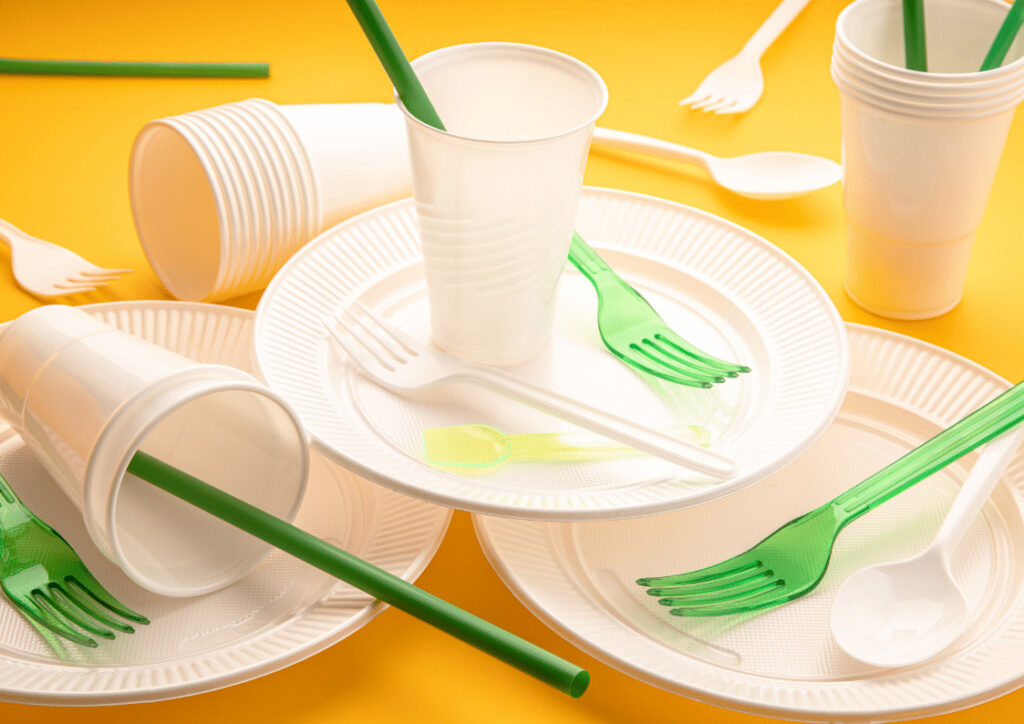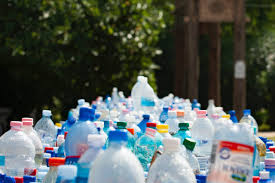
England has announced banning plenty of plastic items that can used only once time like plates and cutlery to fight against plastic pollution. The ban will foist items including plastic trays, bowls, cutlery, food containers, and plastic cups. However, the ban will not be imposed on the items available in shops or supermarkets as the government decides to label them differently.
Therese Coffey, environment secretary stated while reassuring the decision, ‘This new ban will have a huge impact to stop the pollution of billions of pieces of plastics and help to protect the natural environment for future generations,’
Well, since 2020 several single-use plastic objects such as straws, cotton buds, and stirrers have been banned in the UK. The brand new ban is notably relevant to the takeaway food and drinks packaging. They are thrown away after being used for only one time and also do not undergo the process of recycling.
Plastics campaigner for Greenpeace UK, Anna Diski stated, ‘legislating token bans on a few single-use plastic items every few years… was completely inadequate to the scale of the problem’.
Additionally, she said, ‘Instead of this piecemeal approach, the government needs to address the problem at the source and roll out a serious strategy to cut how much plastic is being produced,’
Rebecca Pow, the Environment Minister said, ‘This new ban will protect the environment and help to cut litter – stopping plastic pollution dirtying our streets and threatening our wildlife.’ Continued saying, ‘This builds on world-leading bans on straws, stirrers, and cotton buds, our single-use carrier bag charge, and our plastic packaging tax.’

She also mentioned in a statement, ‘Plastic is a scourge which blights our streets and beautiful countryside, and I am determined that we shift away from a single-use culture.’
Moreover, Frédérique Mongodin, the senior marine litter policy officer at Seas at Risk mentioned, ‘If you are only banning some items and overlooking other products, then it is not sufficient,’
The Greenpeace official Nina Schrank said, ‘It is a step in the right direction,” said Nina Schrank,’ added, ‘But it is a small step.’ She also added that several large sources of plastic waste are still undisturbed such as grocery and food packaging, packaging of snacks, fruit, and vegetables are the very common items that are found in the wastage. She added, ‘We’re being fed little treats here when the big real questions are being unanswered,’
The consumption and production campaigner for Zero Waste Europe, Larissa Copello said, ‘The issue of single-use is not only about plastic but single-use paper and single-use glass,’ added, ‘It’s all about the consumption of products that are only used once and thrown away.’
Policy manager at City to Sea, Steve Hynd said that the decision to ban is welcomed but ‘these are very much minimum agreed standards.’ He moreover said, ‘The ban will help England catch up with other countries that already implemented similar bans years ago, but for England to be true ‘global leaders’ in tackling plastic pollution like this government claims to be, we need them to go much further.’








